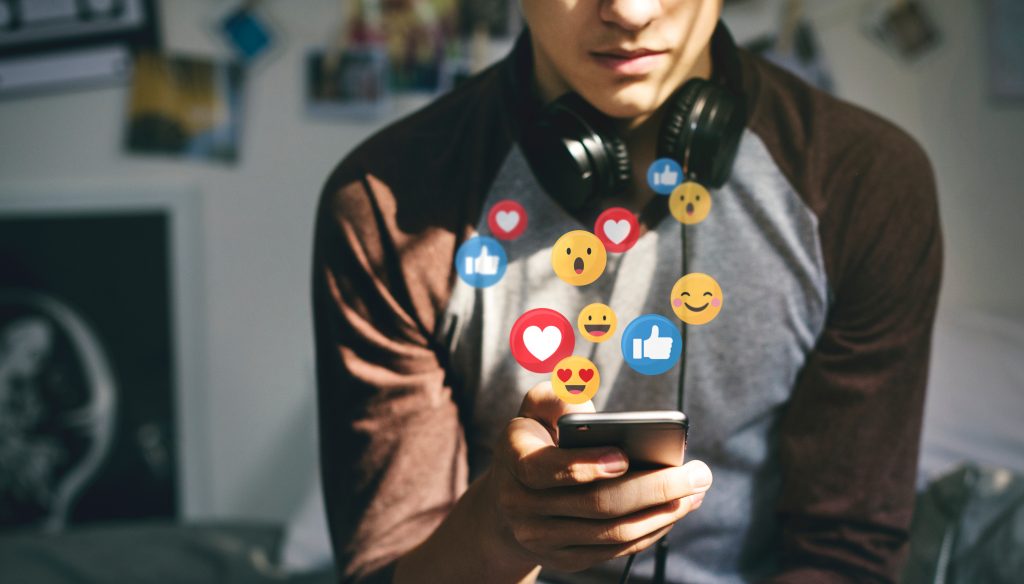
Who would have thought that in 2023, posting pictures on Instagram could be a lucrative career? We may not have self-driving cars or robot housekeepers, but even still, technology is impacting our lives in ways we never could have seen coming.
Social media influencing has been around longer than modern social media! It began with “mommy bloggers” back in the early 2000s, became more commonplace once Instagram came around, then spiked when TikTok took off. In 2023 the influencer marketing industry is worth almost 21.1 billion dollars!
So, what do social media influencers do? Social media influencers have built their reputation and personal brand in a particular niche like fashion, beauty, travel, or even parenthood. Influencers create and share content to their large followings, developing partnerships with relevant companies along the way. Through these partnerships, influencers market products and services in order to earn an income.
This career choice seems harmless enough, but for impressionable young users on social media, influencers can have more negative effects than positive. To learn more about how influencers influence us and influencers’ impact on youth, keep reading!
Positive Effects of Influencers on Youth
Let’s start with the good news, first! Some social media influencers focus on creating a safe and uplifting space for their followers. This can provide a great deal of support for those struggling with isolation, mental health issues, and other personal challenges.
Here are some of the positive effects of influencers on youth:
They Offer Support & Validation
When preteens and teens aren’t finding adequate support from their friends and peers, an influencer might be able to fill the gaps.
This can be the case for children who have uncommon interests, mental illness, medical conditions, or disabilities. An influencer with the same circumstances can connect preteens and teens to a broader online community of folks similar to themselves.
They Spread Positivity
Some influencers build their brand solely on spreading positivity! For preteens and teens hoping to lift their spirits, turning to these influencers can turn their mood around.
Whether an influencer is creating hilarious videos, sharing funny memes, or simply posting encouraging words, their digital space can put a smile on your child’s face!
Negative Effects of Influencers on Youth
With the good comes the bad. Social media influencers can adversely affect how preteens and teens feel about themselves and their lives.
Here are some of the negative effects of influencers on youth:
They Promote an Unrealistic Lifestyle
It’s no secret that social media influencers can bring in a lot of cash and often live a lavish life—or give the impression that they do.
Designer clothing, brand-new cars, custom-made homes, and frequent exotic vacations aren’t realistic for most American families. But if your child fills their feed with influencers who appear to have it all, they might begin to believe that these lifestyles are the standard.
Remind your preteens and teens that influencers are paid to advertise products and present a certain image. It’s their job! Their life may look luxurious online, but that doesn’t mean the representation is accurate.
They Create Body Insecurity
Many social media influencers are women. These women are typically considered conventionally attractive, meaning their appearances align with what society has deemed “good-looking.”
For preteens and teens who don’t fit that mold or struggle with body image, seeing influencer after influencer can be discouraging. With one in three teenage girls already feeling negatively about their bodies because of social media, this kind of content only makes matters worse.
Remind your child that their body is an instrument, not an ornament. Their appearance should be the least interesting thing about them! And don’t forget to remind them that it’s easier than ever to manipulate photos and videos online. With the combination of angles, posing, lighting, and editing, looks can be deceiving!
They Foster Feelings of FOMO
When a social media influencer is eating, wearing, buying, or doing something, their followers will want the same. After all, that’s what influencers are paid for!
This phenomenon can be explained by the bandwagon effect. According to Very Well Mind, “The bandwagon effect refers to the tendency people have to adopt a certain behavior, style, or attitude simply because everyone else is doing it.”
No one wants to be the odd one out. Influencers’ marketing tactics can cause kids to think that in order to be cool and accepted by others, they need to be doing what influencers are doing.
Have a conversation with your child about their FOMO—fear of missing out—feelings. Ultimately, reducing time on social media and cultivating a rich life offline can help them beat those bandwagon-effect blues!
They Endorse Unnecessary Products
Because social media influencers make their money from marketing, there’s no telling how much thought or research is put into the company partnerships they make.
The foods they promote could be unhealthy, the drinks could be alcoholic, and other products could be inappropriate—or just plain unnecessary—for children.
Living Life Uninfluenced
While social media influencers can have a positive impact on preteens and teens, it’s more common for kids to feel inadequate and insecure after following influencers.
With Troomi, you won’t have to worry about who your child is following on social media. Why? Because on Troomi phones, there is no social media! Troomi believes that children have limitless potential and should be empowered to learn, do, and become anything. Without social media, kids can focus on exploring their interests, developing their talents, and living fulfilling lives off the screen!
Click here to learn more about Troomi’s mission.
